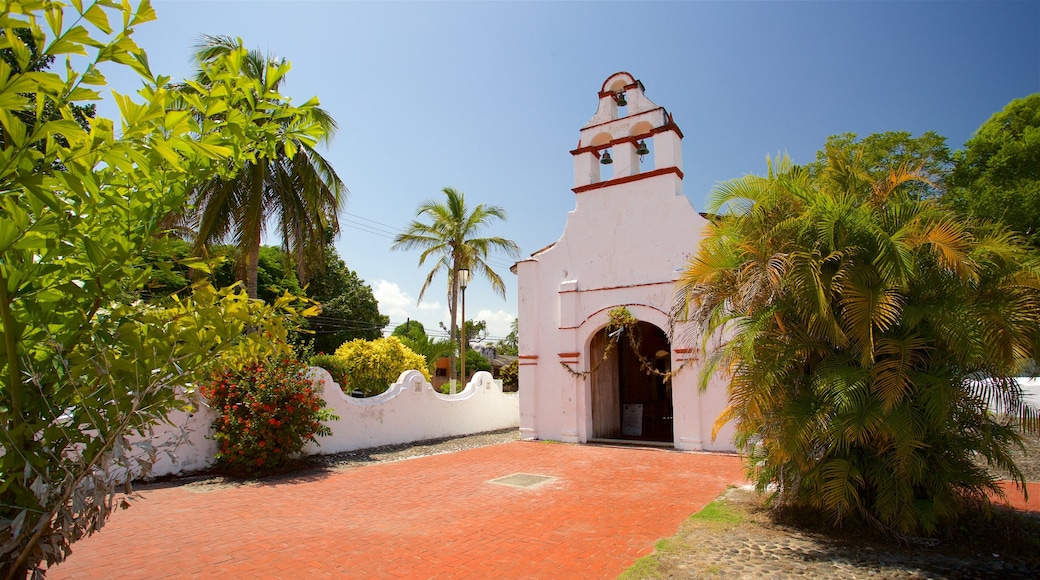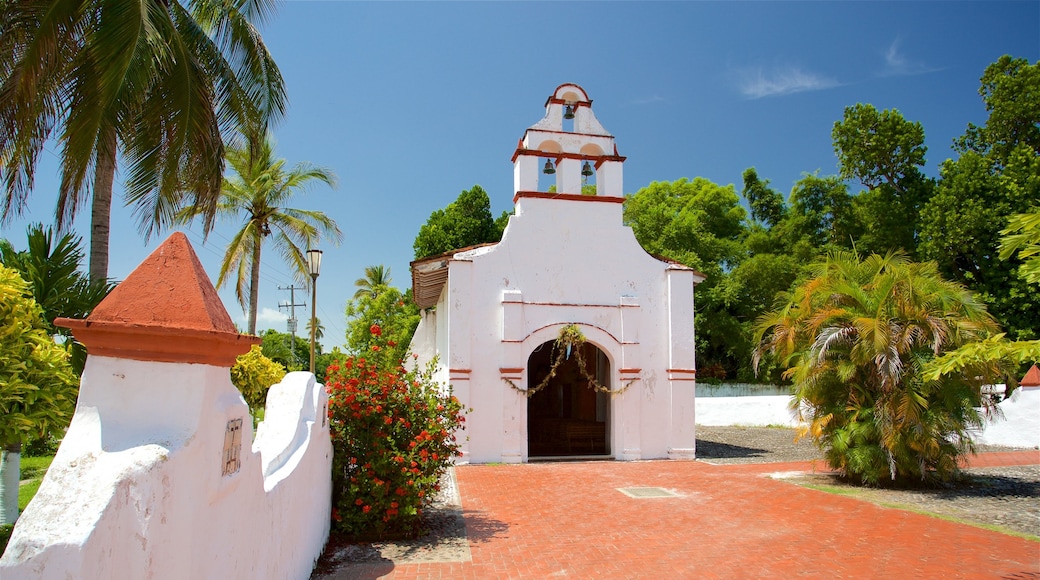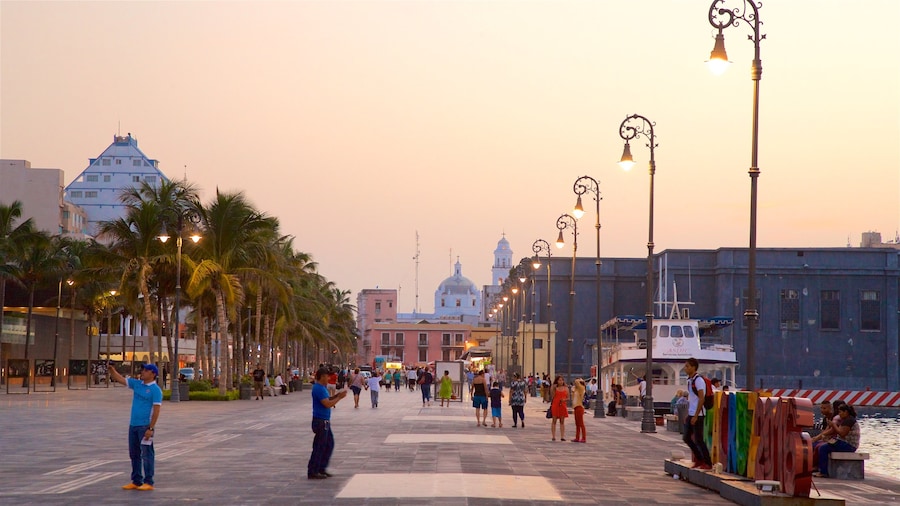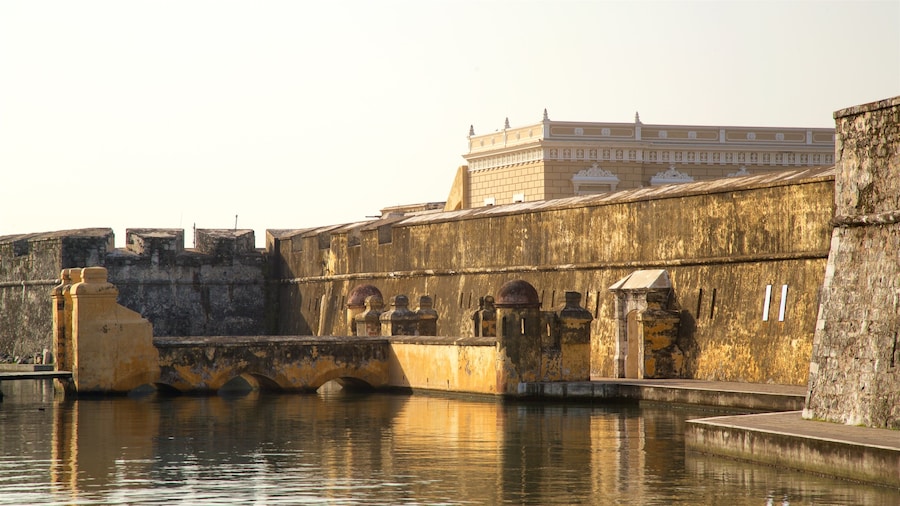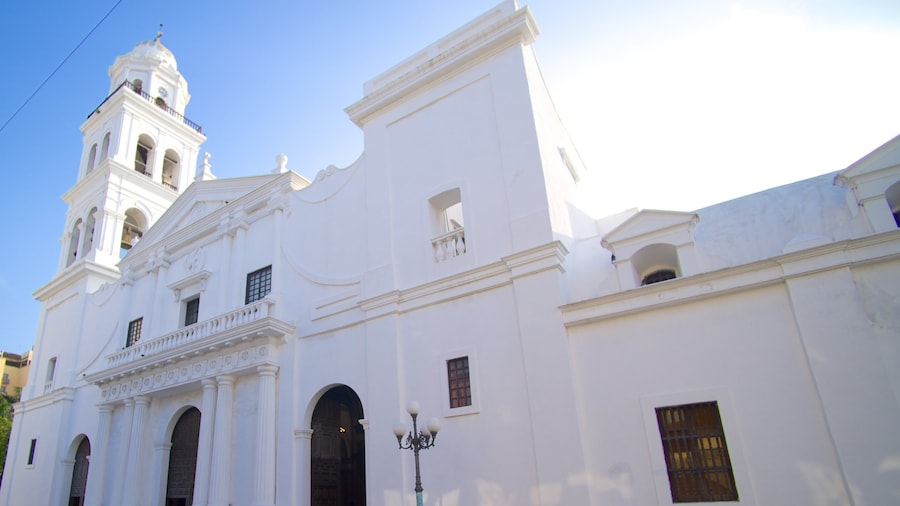Visit this beautiful 16th-century chapel, famous for its whitewashed colonial architecture and mosaic portrayal of the Way of the Cross.
Experience the serene spiritual ambiance of the Chapel of the Rosary (Ermita del Rosario Chapel). This humble hermitage is one of the age-old architectural treasures of the ancient Mexican town of La Antigua. The Chapel of the Rosary dates back to 1523, when it was commissioned by the Spanish conquistador Hernán Cortés. Step inside to witness its almost 500-year-old history and appreciate its artwork.
The chapel features a simple Spanish colonial design. Above the main entrance is a bell-gable, which has three arches where bells hang. Surrounding the building is a rolling stone wall decorated with mosaic depictions of the 14 Stations of the Cross. The mosaics are made from Talavera pottery, a style of glazed ceramic that originated in the city of Puebla in the 1500s.
Palm trees tower over the chapel and enhance its picturesque setting. To the side are the remains of a former Spanish cemetery. Curiously, the Spanish were buried closest to the chapel, the Mexicans in the cemetery’s middle section and the indigenous people in the far reaches.
Inside, look for a baptismal font made from volcanic stone by indigenous people. The main altar is garlanded with figurines of deities and saints. Adorning the vault is a rosette flower sculpture. Its 12 petals represent the Franciscan missionaries credited with building the chapel.
Find the chapel at the edge of La Antigua’s town center, a short walk from the town’s other historic landmarks. Among these are the remains of the 16th-century customs house called the House of Hernán Cortés. See the Sacred Ceiba Tree legend states that Cortés tied his boats here upon arrival in Mexico. The Parish Church of Santo Cristo del Buen Viaje and the ruined Stables of Antonio López de Santa Anna are also worth visiting.
Devotees come to the Chapel of the Rosary to pray and ask for blessings therefore, visitors should remain quiet and be respectful when taking photos.

